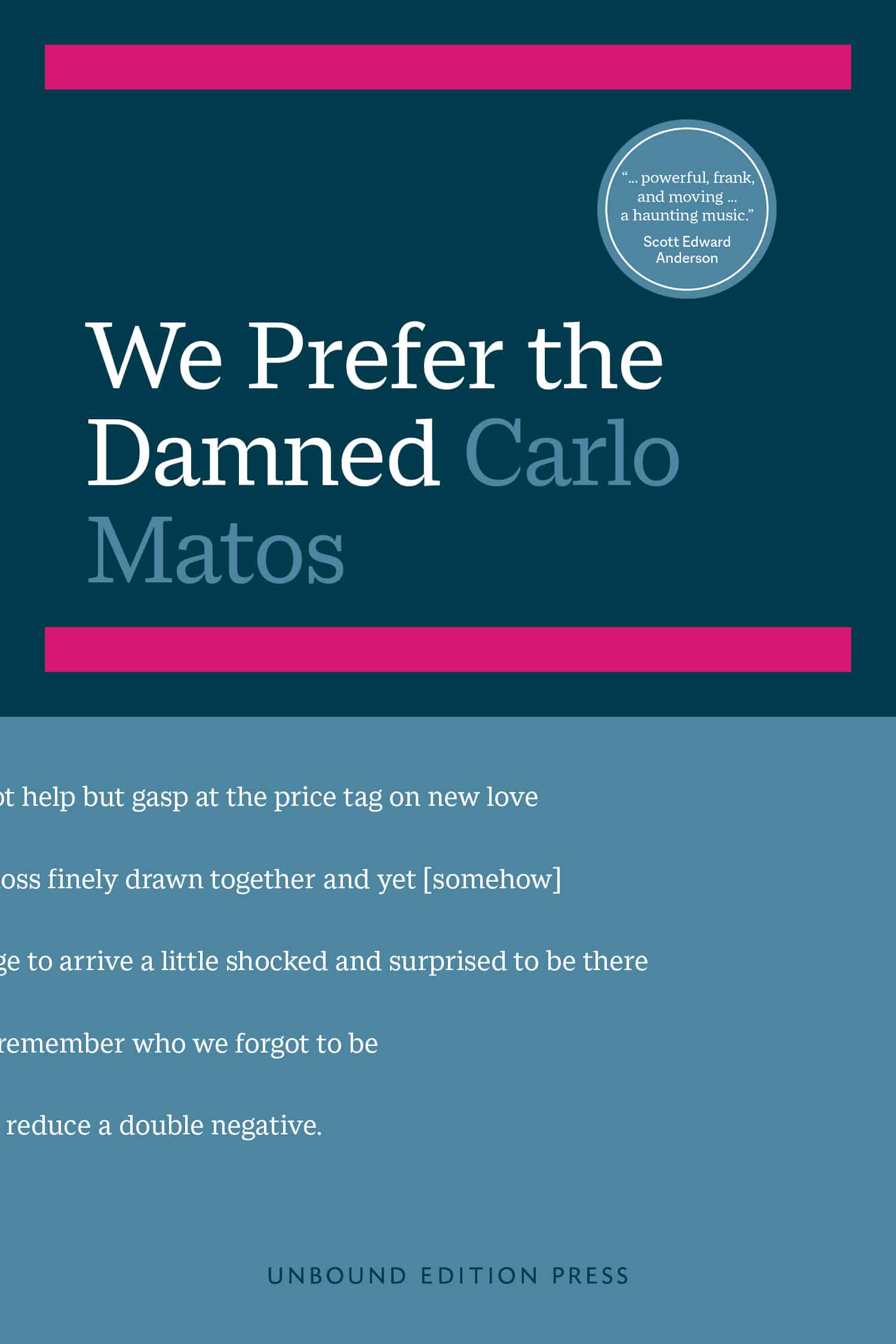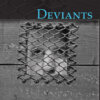Contributor News
New from Carlos Matos We Prefer the Damned
Carlo Matos explores bisexual identity, relationships, erasure, and denial.
Summary
We Prefer the Damned, the 11th book from Carlo Matos, features poems exploring bisexual identity, relationships, erasure, and denial. Matos, equally celebrated for his fiction, poetry, and prose-poetry, pushes toward a new grammar for intersectional identities as the poems in We Prefer the Damned weave his Portuguese-American heritage and bi+ lived experience. Through language turned and punctuated in fresh ways, Matos finds the structures and syntax to embrace past and present, old self and new self. His toughness as a former MMA fighter turns to the finessed strength of rigorous self-examination with these poems. The collection embraces the true complexities of the bi+/pan/poly experience, particularly false accusations of not being Queer enough or, simultaneously, of being too sexual and incapable of monogamy. These poems also trace the boundaries where such issues interact with a working-class, child-of-immigrants upbringing, in which the very words for describing bisexuality did not exist. With We Prefer the Damned, Carlo Matos creates that missing language.
Reviews
“With lines like ‘When you don’t belong anywhere, you make a location of yourself / only to realize it’s not a place you want to be from,’ Matos’s poems wrench and wring through what and who we desire. In a relentless searching of self, We Prefer the Damned mines both the harsh and the tender. This collection is both the digging and the earth.”
Michael Torres, author of An Incomplete List of Names
“We Prefer the Damned are poems for rejoicing. Here, bodies welcome the damnation of othering, can ‘meet without coming into conflict,’ while still grappling with the ‘meat’ of queering implicit in pop culture posturing, working class immigrant family legacies, intellectuality, biculturalism / bisexuality and ‘the erroneous idea that binary means two.’ Matos deftly dissects the ‘wilderness’ of lost boys and ‘malditos’ becoming men who, despite their parrying, yield to ‘tenderness / like my hand in the back pocket of my new lover.’ These are unsparing love poems with a fierce fighter’s joy at their core.”
PaulA Neves, author of capricornucopia (the dream of the goats)
“In We Prefer the Damned, Carlo Matos explores his bi+(-furcated) world: straddled between two worlds, two choices, two sexes, between denial and desire, between enlightenment and solace. Matos shares what it is like to be ‘between the old world and the new halfway between places we don’t belong to.’ This is a powerful, frank, and moving collection of poems where, as Matos writes, ‘even a major chord can sound like dissonance’ and, yet, can still make for a haunting music.”
Scott Edward Anderson, author of Azorean Suite / Suite Açoriana
Carlo Matos’s translation of Vanity by Florbela Espanca appears in Your Impossible Voice #13.
He is a bisexual-plus author who has published ten books, including The Quitters and It’s Best Not to Interrupt Her Experiments. His poems, stories, and essays have appeared in such journals as Hobart, DMQ Review, and PANK, among others. He currently lives in Chicago, and is a professor at the City Colleges of Chicago and a former MMA fighter.



